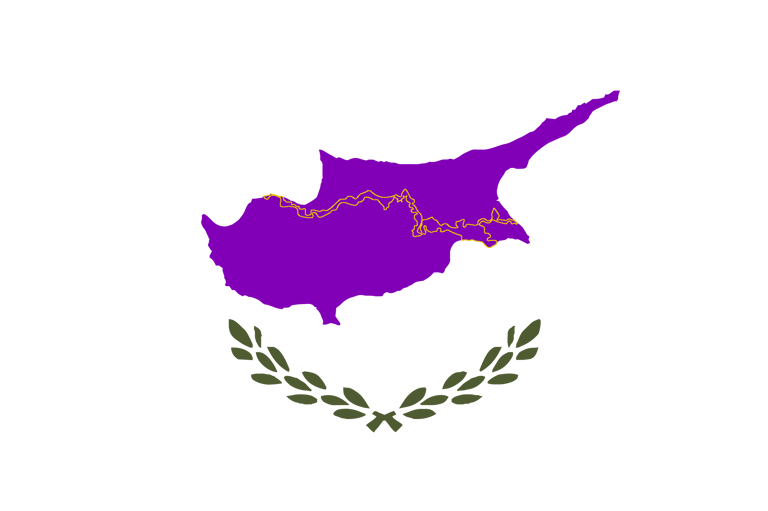Positionality in the Cypriot context
You, your morality, emotional capacity, intellectual ability are not the default for all others to be compared to because you do not set the standard. The world does not revolve around what you perceive or what you understand. So, are your actions dictated by ego or empathy? Do you praxis what you preach?
What is a positionality statement?
Developed by researchers such as;
Donna Haraway, whose work on situated knowledge and objectivity in the late 1980s highlighted the importance of recognizing the researcher's position and perspective in shaping knowledge production
Patricia Hill Collins, whose work on Black feminist thought and standpoint theory emphasized the unique perspectives and experiences of marginalized groups and the need to acknowledge how social location shapes understanding
Linda Tuhiwai Smith, whose work on decolonizing methodologies and Indigenous research frameworks emphasized the importance of researchers understanding their positionality in relation to power dynamics and historical contexts
A positionality statement is a reflective declaration that allows individuals to articulate their social identities and the influences that shape their perspectives and actions. This introspective practice is vital for acknowledging the interconnected factors—such as culture, socio-economic status, gender, and personal experiences—that contribute to one’s worldview.
Unique variables for every Cypriot include the level of indoctrination by nationalist narratives, exposure to political education and emotional capacity. Some of us were born into anti-oppressive households, some of us have carers so severely traumatized that they are vulnerable to manipulation (and possibly depend on the nation-state dictating identity), some assimilated to whiteness, some peoples' class privilege shields them from oppression, and some people are just fascist. By establishing a clear understanding of one’s positionality, individuals can better navigate the complexities of power within their interactions with others and the broader social context, without leaving the ones who are too poor, too traumatized, too oppressed to be a 'good Cypriot' behind.
An example of what Cypriots may ask to position themselves in our society could be; How are you impacted by displacement? Does it affect your daily life? So, how much space are you entitled to take up in the displacement conversation? How does the society you are based in racialise you, if at all? Does your class shield you from the impacts of this racialisation? So, how much space are you entitled to take up in the racial discourse?
Does your input override somebody who is disproportionately impacted?
Reflecting on one's own positionality can lead to enhanced self-awareness and empathy. By considering how personal experiences shape perceptions, we cultivate a greater appreciation for differing viewpoints and foster more productive dialogues. This practice encourages critical thinking, prompting individuals to ask challenging questions about their biases and assumptions while also acknowledging how these elements influence their understanding of social issues, and what privileges coexist with their struggles.
The Cyprus problem discourse doesn't seem to have adapted since the 60s, yet its people certainly have. An awareness of positionality allows humble individuals to co-develop organic discourse applicable to our unique socio-cultural landscape.
Why is this so important? Because individual experience is a filter of data - not the source
Each person's background serves as a filter that can affect how they perceive and engage with the information available to them. Consequently, interpretations of shared experiences can diverge significantly based on the individual's unique narrative. Such variations highlight that data is not an impartial source of truth but rather a construct influenced by one's identity and lived experiences. Understanding this concept is critical for scholars, policymakers, and community leaders to recognise that 'objectivity' simply does not exist without a homogenous authority to determine what is valuable and what isn't. Hierarchal paradigms are insidious, and we may survive by securing our place within them, but we thrive by dismantling the power they hold. Therefore, it becomes imperative to cultivate an environment where multiple perspectives are not just acknowledged but respected, promoting deeper understanding and empathy among communities.
Accountability and victimhood are not antithetical
This binary however, could not be more antithetical to reunification. The concepts of victimhood and accountability are intricately linked. While the experiences of oppression merit serious acknowledgment, this merit is diluted when individuals leverage such experiences for personal gain or evading responsibility.
We're currently in a crisis of access to language being abused. Where liberatory language was once developed by oppressive circumstances, we're now seeing language co-opted by people confusing exposure with entitlement. Have you actually earned the use of this language, or have you assumed access? Drawing upon layers of your identity does not immediately bestow you with the struggles experienced by others within that identity. One does not become oppressed just by saying it, and this capital has come to be weaponised by (ironically) those most distant from the impact. Are you entering Cypriot discourse with a grounded perspective of internal dynamics, or are you superficially looking at us from a MENA perspective? Exploitation undermines genuine efforts to confront systemic issues, severely stalling our progress and diminishing victim-centred agency.
This is the difference between individuals in our society overcoming barriers, and collectively destroying the barriers all together. I know what I'd prefer.



